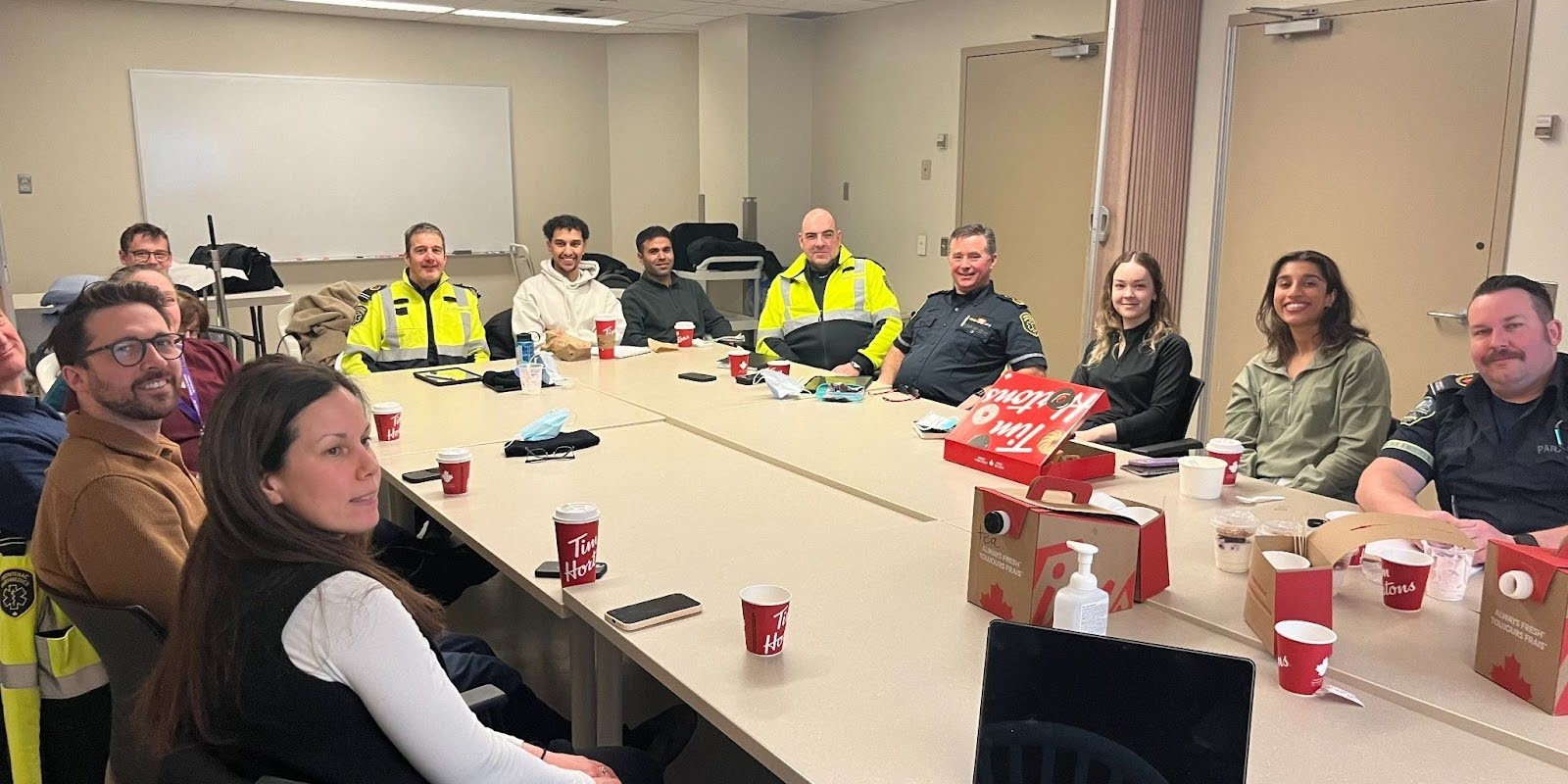
Strengthening regional health systems: Community paramedics train on heart failure care
April 15, 2025.
The FLA OHT and its partners are breaking new ground by developing innovative training programs that complement their work on Integrated Care Pathways. A key part of this effort is the Community Paramedic Training initiative, designed to boost collaboration and empower paramedics to support heart failure care within their practice. By connecting Community Paramedics directly with the Heart Function Clinic at Kingston Health Sciences Centre (KHSC), this training helps coordinate care to ensure that people receive the right care at the right time for their unique health needs. This integrated approach strengthens our regional health-care system while ensuring that people with chronic conditions like heart failure are managed effectively and efficiently.
Enhancing Integrated Care Pathways
At the heart of this initiative is a vision for a health-care system that is less fragmented and more collaborative. The collaboration between KHSC’s Heart Function Clinic and regional community paramedic providers (Lennox & Addington, and County of Frontenac) is a key component of the Integrated Care Pathways within the FLA OHT. It brings together multidisciplinary teams to provide a unified approach to care, ensuring that community members receive evidence-based support at every stage of their health journey.
A focus on heart failure management
The primary goal of this Community Paramedic Training is to equip community paramedics with the knowledge and skills they need to support individuals living with congestive heart failure. These training sessions cover essential information on heart failure, its early warning signs and symptoms, assessment for heart failure, and ways to help people manage their condition at home.
The training is designed to bridge the gap between community care and specialized heart failure treatment. By enhancing the capabilities of community paramedics, the program ensures they can deliver timely and accurate assessments, supporting people before complications arise.
Building a streamlined process through collaboration
One of the standout features of this initiative is the co-development of a streamlined process that connects community paramedics with the Heart Function Clinic at KHSC. During the training sessions, paramedics collaborated with the Heart Failure Pathway Lead Dr. Aws Almufleh, and the Heart Function Clinic team to create a draft protocol that outlines when and how to access each other’s services. This clear process means that if a community member shows signs of a heart failure exacerbation, or is being seen in the Heart Function Clinic and could benefit from community paramedics services, each party knows exactly who to call and how to mobilize care quickly.
For example, if the Heart Function Clinic team identifies a person who could benefit from community paramedic follow up, they can complete an online referral. For more urgent consultations, a direct line to a coordinator has been made available for same-day assessments. Conversely, if a community paramedic is on a call and identifies someone who may need consultation with the Heart Function Clinic, they can contact the Nurse Practitioner at the clinic through a direct line to escalate the person’s care. This protocol ensures that everyone involved—whether a community paramedic or a clinic nurse practitioner—understands their role, preventing delays and making sure people receive timely care.
The role of community paramedics along the care journey
Community paramedic services are an integral part of a person’s care journey, particularly for those managing chronic conditions such as heart failure and chronic obstructive pulmonary disease. A community member can expect services that include:
-
In-home wellness checks: Visits to assess overall health and vital signs, verify adherence to treatment plans, and provide necessary interventions like certain IV treatments and blood tests. In-home visits are provided within 24-48 hours of referral from a physician, operating 7 days a week.
-
Remote monitoring: Regular remote tracking of vital signs and other health indicators for early detection of potential problems through a digital platform.
Through this integrated model, providers work together to quickly identify and manage heart failure exacerbations and ensure that people receive proactive, preventive care. This seamless collaboration allows for timely follow-ups and appropriate escalation of care, ultimately leading to better health outcomes. With ongoing training and continuous refinement of these protocols, the FLA OHT aims to integrate additional services and keep advancing person-centered care. This forward-thinking approach creates a more responsive and connected health-care system that works to keep people healthy at home.
